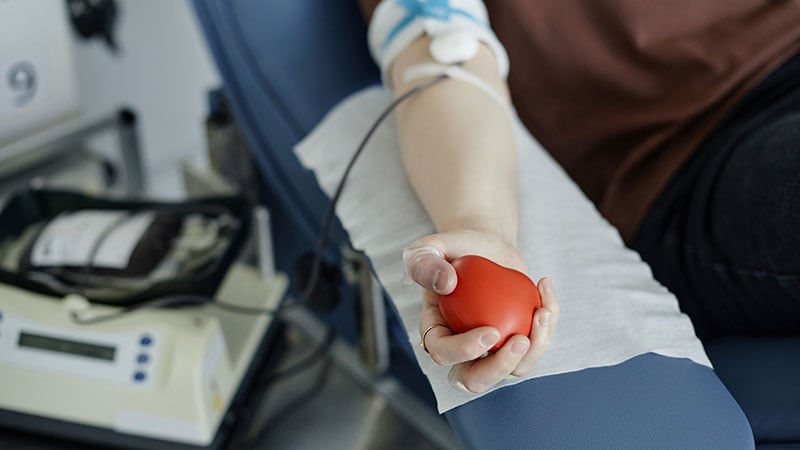The Committee for Medicinal Products for Human Use (CHMP) has recommended dropping a previous ban on donations of blood or plasma for fractionation from individuals who had spent at least 1 year in the United Kingdom in the 1980s and early 1990s. Exclusions were imposed by many European countries in response to concerns about possible human transmission of variant Creutzfeldt-Jakob disease (vCJD) by blood transfusion after exposure of the donor to food contaminated with the agent responsible for bovine spongiform encephalopathy (BSE) in cattle during an outbreak of BSE (mad cow disease) in the United Kingdom.
Disease Universally Fatal
BSE and its human form, CJD, are among the transmissible spongiform encephalopathies, also called prion diseases, which cause progressive and rapidly worsening brain damage. In humans, CJD manifests as loss of intellect and mobility, usually leading to death within 1 year of symptom onset. It may arise sporadically, but in 1996, a new variant form was discovered to be linked with consumption of BSE-infected meat.
After a much-publicized outbreak of BSE in the United Kingdom in the 1980s and early 90s, strict controls were implemented to prevent meat from infected cattle entering the food chain. However, the long incubation period, which may be over 10 years, meant that those exposed to infected meat before the food controls were introduced could still develop or transmit vCJD.
Donations Barred in USA and Much of Europe
As a result, in 1999, the US Food and Drug Administration banned blood donation by people who had lived in the United Kingdom for more than 6 months between 1980 and 1997.
In February 2003, the European Medicines Agency said that “residence in the UK is a recognized risk factor for vCJD” and recommended that donors who had spent a cumulative period of 1 year or more in the UK between the beginning of 1980 and the end of 1996 be excluded from donating blood or plasma for fractionation.
Various European countries deferred donors for variable cumulative periods spent in the United Kingdom, ranging from 6 months in the case of Austria, Belgium, Estonia, Germany, Italy, Malta, the Netherlands, and Switzerland to 12 months in Denmark, France, Luxembourg, Portugal, Slovenia, and Spain.
In addition, 16 countries permanently deferred donors of blood or plasma-derived medicinal products who had received a blood transfusion during the BSE/CJD outbreak. In eight of these countries, deferral was restricted to those whose donations had occurred in France, Ireland, or the United Kingdom.
A UK ban was instituted in 2004 after a December 2023 government announcement that a patient had died of the disease after receiving blood years earlier from a donor who contracted vCJD. The case was the first of its kind recorded in the world, and the government revealed that 15 other people were known to have received blood from donors who subsequently developed vCJD. In October 2001, the government announced a compensation scheme for UK victims of variant CJD.
No Transfusion-Associated Cases Since 1999
The CHMP said that its new reflection paper was the first revision since 2011 and intended to account for scientific and epidemiologic developments since then. The exclusion from donating blood or plasma for fractionation was “no longer maintained,” the CHMP said, because cases of vCJD had declined in the past two decades. The initially postulated second wave of vCJD had not occurred; the last-known UK case was reported in 2016, and no transfusion-transmitted infections had been reported from the United Kingdom since 1999.
A similar ban in Australia was lifted in 2022 after calculations showed the risk for transfusion-related contamination leading to a clinical case to be of the order of 1 in 1.4 billion.
>>> Read full article>>>
Copyright for syndicated content belongs to the linked Source : Medscape – https://www.medscape.com/viewarticle/europe-drops-uk-mad-cow-blood-ban-2024a1000a9l
